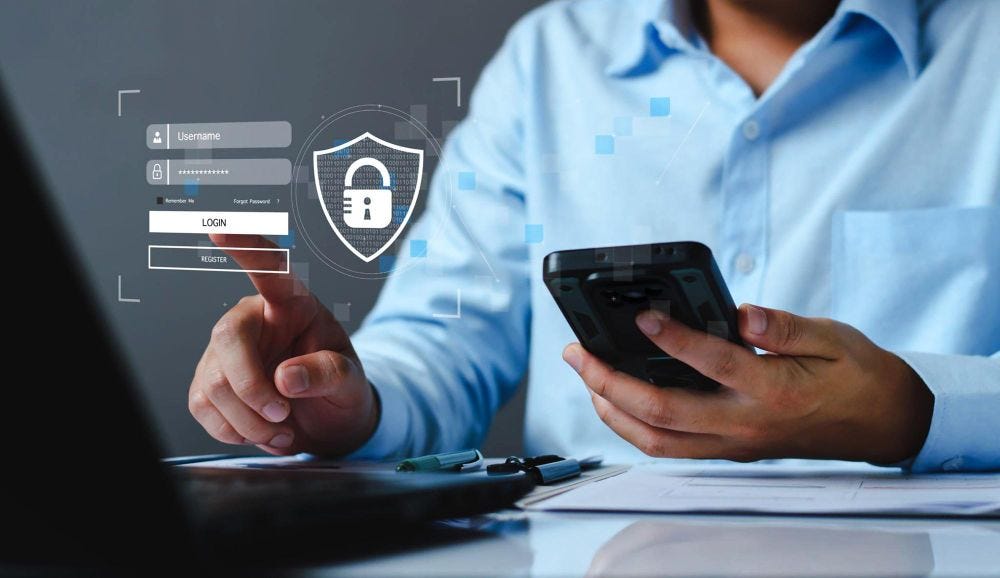As Bitcoin continues to revolutionize the financial landscape, its security remains a top concern for users. Cyberattacks and fraud are prevalent, and Bitcoin’s decentralized nature means users are responsible for protecting their funds.
One of the most effective and widely used tools to secure Bitcoin accounts is Two-Factor Authentication (2FA). This article explores how 2FA enhances Bitcoin security, how it works, and best practices for implementing it.
What is Two-Factor Authentication (2FA)?
Two-Factor Authentication is a security process that requires two different forms of identification to access an account.
For Bitcoin users, this often involves a combination of something you know (a password) and something you have (a code from an authenticator app or hardware key).
This additional step makes it significantly harder for hackers to gain unauthorized access to your accounts, even if your password has been compromised.
Why is 2FA Important for Bitcoin Security?
- Prevents Unauthorized Access
Without 2FA, a hacker only needs your username and password to access your Bitcoin wallet or exchange account. 2FA provides an extra layer of security by requiring a second form of verification, making it far more difficult for attackers to breach your account. - Protects Against Phishing Attacks
Phishing is a common tactic used by hackers to trick users into revealing their login credentials. Even if you accidentally fall for a phishing scam and your password is stolen, 2FA ensures that hackers cannot access your account without the second authentication factor. - Mitigates the Risk of Password Theft
Data breaches and password leaks are common, with millions of passwords being exposed regularly. If a hacker obtains your password through a data breach, 2FA acts as a strong barrier, preventing them from accessing your Bitcoin wallet without the second verification step.
How Does 2FA Work for Bitcoin?
For Bitcoin users, 2FA is often implemented when accessing wallets, exchanges, or trading platforms. Here’s how the process typically works:
- Login Attempt
When you log into your Bitcoin wallet or exchange account, you enter your username and password. - Second Factor Request
After entering your credentials, the system prompts you to provide the second factor, which could be a code generated by an authenticator app (such as Google Authenticator), a hardware key, or an SMS message. - Verification
Once you enter the 2FA code, the system verifies both your password and the second factor before granting access to your account.
This two-step process significantly reduces the risk of account breaches, even if your login credentials are compromised.
Types of Two-Factor Authentication
- App-Based 2FA
App-based 2FA uses a mobile authenticator app like Google Authenticator, Authy, or Microsoft Authenticator to generate a time-sensitive code. This is considered one of the safest 2FA methods because the code changes every 30 seconds and is not transmitted over potentially insecure channels like SMS. - Hardware-Based 2FA
A hardware-based 2FA method involves using a physical security key (such as a YubiKey) that must be inserted into your device to confirm your identity. This is one of the most secure forms of 2FA because it requires physical possession of the key. - SMS-Based 2FA
SMS-based 2FA sends a one-time code to your mobile phone via text message. While it adds an extra layer of security, SMS-based 2FA is more vulnerable to attacks like SIM swapping, where hackers take control of your phone number and intercept the code.
Best Practices for 2FA in Bitcoin Security
- Use App-Based or Hardware 2FA Over SMS
While SMS-based 2FA is better than no 2FA, it is less secure than app-based or hardware-based 2FA. App-based 2FA generates codes locally on your device, making it more difficult for hackers to intercept. Hardware keys provide the highest level of security, especially for those handling significant amounts of Bitcoin. - Enable 2FA on All Bitcoin-Related Accounts
Make sure to enable 2FA on all accounts associated with your Bitcoin, including wallets, exchanges, and email accounts linked to your Bitcoin activity. This ensures that all access points are protected by an additional layer of security. - Backup Your 2FA Codes
Losing access to your authenticator app or hardware key can result in losing access to your Bitcoin. Always securely store backup codes or use a backup phone number for your 2FA accounts. You may also want to use services like Authy, which allow for secure backups of your 2FA credentials. - Avoid Reusing Passwords
Even with 2FA enabled, it’s essential to use strong, unique passwords for your Bitcoin accounts. Reusing passwords across different accounts increases the risk of compromise in the event of a data breach. - Monitor for SIM Swapping
If you use SMS-based 2FA, be cautious of SIM swapping attacks. Contact your mobile provider to implement additional security measures, such as PIN protection or limiting changes to your account without in-person verification.
Common Mistakes to Avoid
- Relying Only on SMS 2FA
While better than no 2FA, relying solely on SMS-based 2FA leaves you vulnerable to SIM-swapping attacks. If possible, switch to app-based or hardware-based 2FA to reduce this risk. - Not Securing Backup Codes
When you enable 2FA, many platforms will provide backup codes in case you lose access to your primary authentication method. Failing to store these codes securely could leave you locked out of your Bitcoin wallet or exchange account if something happens to your device. - Ignoring 2FA for Small Transactions
Some users only use 2FA for large transactions, leaving smaller accounts or wallets unprotected. However, any Bitcoin holdings—no matter how small—are vulnerable to theft, so it’s important to use 2FA across all your accounts.
Conclusion
Two-factor authentication is a powerful tool for enhancing Bitcoin security, but it’s only part of a broader strategy to protect your assets.
By choosing app-based or hardware-based 2FA, backing up your authentication methods, and applying 2FA across all Bitcoin-related accounts, you can significantly reduce the risk of falling victim to cyberattacks.
In an era of increasing threats, adopting robust security measures like 2FA is essential for any serious Bitcoin user.
